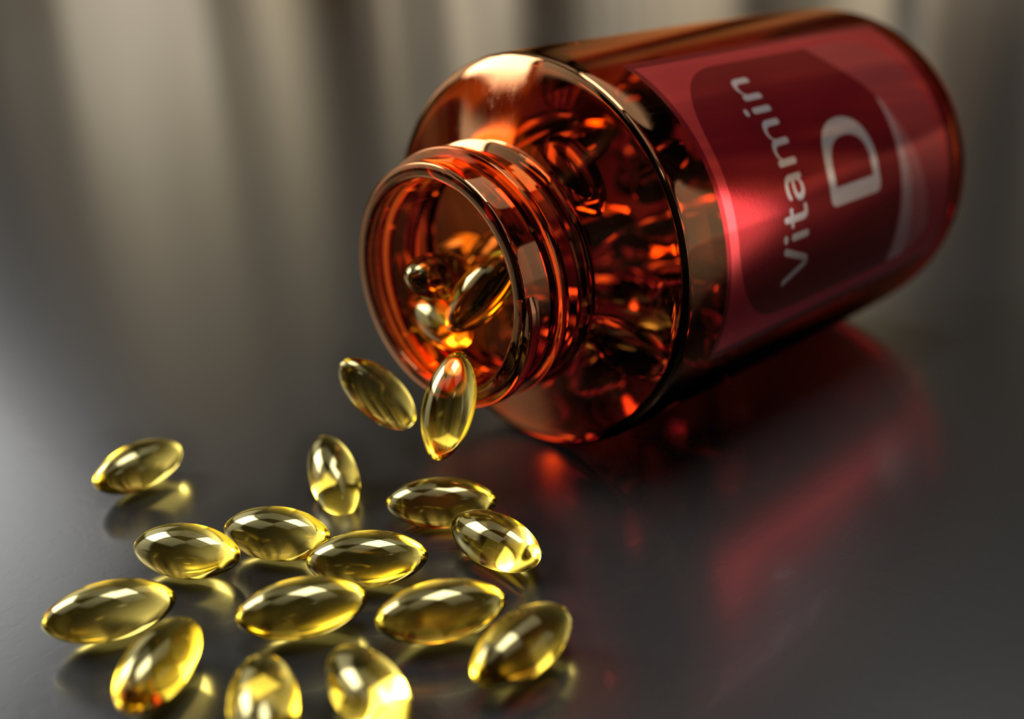Learn about the importance of Vitamin D, its health benefits, deficiency symptoms, and the best ways to boost your levels quickly through sunlight, diet, and supplements.
Disclaimer
The content on this website is intended for informational purposes only, and is not a substitute for professional medical advice, diagnosis, or treatment. Discuss any information from this website with a qualified healthcare provider or licensed medical professional to determine its relevance and suitability for your individual health needs.
Note: This article is written in plain, simple English to ensure the information is easily accessible to everyone, including patients, health enthusiasts, and the general public.
Table of Contents
Introduction
Vitamin D, also known as the “sunshine vitamin,” is important for staying healthy. It’s called the “sunshine” vitamin because we mainly get it from sunlight. It helps keep our bones strong, strengthens our immune system, and supports our overall health.

However, lots of people around the world don’t get enough vitamin D and might not even realize it. Not having enough of this vitamin can lead to various health problems, some of which can be serious.
Knowing how to increase your vitamin D levels quickly and effectively is important for staying healthy and avoiding health issues.
In this blog post, we’ll explore everything you need to know about vitamin D and share helpful tips on how to get more of it efficiently. So, sit back and get ready to boost your sunshine vitamin levels!
What is Vitamin D Good For?
Vitamin D is essential for keeping our bodies healthy in many ways. Let’s look at some of its main benefits:
Bone Health Support

One of the most well-known benefits of vitamin D is its crucial role in bone health. It helps keep calcium and phosphorus levels in check, minerals needed to build and keep bones and teeth healthy.
Without enough vitamin D, the body struggles to absorb calcium, which can weaken bones, making them thin, brittle, or misshapen. This can lead to conditions like rickets in kids, osteomalacia in adults, and osteoporosis in older adults, all of which weaken bones and increase the risk of fractures.
Getting enough vitamin D is essential for keeping bones strong and healthy.
Whether in tea or capsule form, ginger remains a popular and effective solution to support gut health and reduce inflammation. Which one you choose relies on your personal taste, but both are great for your gut health.
Boosting the Immune System
Vitamin D is a key player in building a strong immune system. It helps the body respond better to fight off infections and reduce inflammation.
Researchers have found that getting enough vitamin D can lower the risk of respiratory infections, autoimmune diseases, and even some cancers.
Explore our Vitamin D supplements to support your health journey—visit our shop today!
Mental Health and Mood Stabilization

The connection between vitamin D and mental health has gained a lot of attention. Vitamin D helps make chemicals in the brain, like serotonin, that control mood.
People who don’t get enough vitamin D are more likely to feel depressed or anxious. Keeping vitamin D levels healthy can boost overall mood and support better mental health.
Support for Heart Health
We now already know that vitamin D deficiency is common around the world, and is linked to a number of health problems. According to research, people whose vitamin D levels are lower are more likely to get heart disease, high blood pressure, and even die from issues with the blood vessels and heart.
Keeping your vitamin D levels in a healthy range can help protect your heart, lower your risk of heart diseases, and improve your heart health in general.
Muscle Function Support
Vitamin D also helps muscles work. It strengthens muscles and improves performance, making falls and injuries less likely, especially in older people.
Vitamin D helps us stay mobile and independent as we age by keeping our muscles healthy.
Diabetes Management
Research has shown that low levels of vitamin D are linked to a higher chance of getting type 2 diabetes and related health issues.
A lot of people, especially older adults and people of certain races, have this weakness. A new study looked at the link between vitamin D levels and diabetic foot ulcers. It found that people with lower vitamin D levels had worse sores. People in the hospital with diabetes who had foot sores were more likely to not have enough vitamin D.
This shows that making sure your vitamin D levels stay high may help lower your risk of foot ulcers.
Higher levels of vitamin D were linked to a lower chance of insulin resistance in another study. Insulin resistance is a condition in which the body has trouble using insulin properly. Because it lowers inflammation, vitamin D may help guard against insulin resistance.
Based on these results, people with diabetes might benefit from checking for vitamin D shortage and thinking about taking supplements to manage the disease.
Discover how our Vitamin D supplements can enhance these benefits—click here to learn more!
What Happens if Vitamin D is Low?

A lack of Vitamin D can cause a lot of health issues. Here’s a detailed look at what happens with low Vitamin D levels:
Lack of Energy, Mood Swings, Depression
Fatigue and low energy are common signs of vitamin D deficiency. The theory is based on vitamin D’s relationship to mitochondria. Mitochondria are the “powerhouse” of the cells that make energy for different body parts.
According to research, vitamin D helps the mitochondria do their chemical work. Not getting enough vitamin D may hurt mitochondrial function, which can make you tired.
In one study, 174 adults who were feeling tired were looked at. It was found that 77% of these people had low amounts of vitamin D (below 30 ng/mL).
After just five weeks of vitamin D therapy, participants said they felt a lot less tired, and felt much more energetic physically, mentally, and emotionally.

Depression has become a global public health challenge recently. The usual symptoms of depression are loss of interest in activities that used to make you happy but do not do that anymore, sadness, irritability, feelings of worthlessness and helplessness, worries about death, or thoughts of suicide.
Even though depression is common and affects millions of people all over the world, it is hard to treat.
Low vitamin D levels are linked to more depressive and anxious symptoms. Because of this, getting a vitamin D test is suggested as a way to avoid and treat this mood disorder.
Muscle Weakness and Bone Pain

If you have low vitamin D levels, your body has trouble absorbing calcium properly. This can weaken your bones and cause pain, which is often called osteomalacia in adults.
This deficiency can also make muscles weak, making daily tasks harder and raising the risk of falls and broken bones, especially in older people.
A lack of vitamin D can cause persistent pain, muscle aches, and a feeling of tiredness.
According to Yale Medicines, taking vitamin D supplements can make muscles work much better and ease pain.
Long-term Health Risks
A long-term deficiency of vitamin D can lead to osteoporosis, which raises the risk of bone fractures. It also makes one more likely to get infections because the immune system is weaker.
Long-term vitamin D deficiency has been linked to a higher risk of chronic illnesses like heart disease and some types of cancer.
Take control of your health—shop our Vitamin D supplements to help manage these risks effectively.
How much Vitamin D do I need?

You need a different amount of vitamin D daily based on age. The following table shows the average daily suggested amounts in micrograms (mcg) and International Units (IU).
Life Stage Recommended Amount
Birth to 12 months: 10 mcg (400 IU)
Children 1–13 years: 15 mcg (600 IU)
Teens 14–18 years: 15 mcg (600 IU)
Adults 19–70 years: 15 mcg (600 IU)
Adults 71 years and older: 20 mcg (800 IU)
Pregnant and breastfeeding teens and women: 15 mcg (600 IU)
Source: The Office of Dietary Supplements (ODS), part of the National Institutes of Health (NIH), USA
What are the best sources of Vitamin D?
Understanding the sources of Vitamin D is essential to maintaining adequate levels. Here are some primary sources:
Natural synthesis through sunlight exposure

When the skin is exposed to sunlight, it makes Vitamin D. Spending time outside, letting the sun shine on your face or arms, between 11 am and 3 pm, can greatly raise levels. But be careful not to stay too long and risk getting sunburnt.
But things like skin color, where you live, and whether or not you use sunscreen can change how much vitamin D your body makes. For people living in northern latitudes, sunlight exposure might not be enough during winter.
Dietary sources of Vitamin D

Image credit: iStock
Here’s a list of foods rich in vitamin D:
- Salmon
- Cod liver oil
- Swordfish
- Tuna fish
- Sardines
- Fortified dairy and plant milk
- Fortified orange juice
- Fortified cereals
- Egg yolks
- Beef liver
- Cheese
Supplements
Supplements can effectively ensure adequate intake for individuals who may not get enough Vitamin D from sunlight and diet. This is particularly important for those in regions with limited sun exposure or those with dietary restrictions.
How Can I Raise My Vitamin D Levels Quickly?
If you’re looking to raise your Vitamin D levels quickly, try these tips:
Timely supplementation

You should take vitamin D tablets or capsules. Most doctors recommend Vitamin D3 supplements because they are better at raising vitamin D levels in the blood than Vitamin D2 pills. Get help from a medical professional to find the correct dose for your needs.
Strategies to improve absorption and effectiveness
Vitamin D is a fat-soluble vitamin, so eating good fats with it will help your body absorb it better. Avocados, nuts, and seeds are some things that can help with this process.
Explore our range of high-quality Vitamin D3 supplements to support your health. Pair them with our selection of healthy fats and nutritional products to maximize absorption.
—click here to learn more!
High-Dose Therapy
For people who are severely deficient, high-dose Vitamin D therapy may be recommended by a doctor to quickly raise levels. To avoid toxicity, a medical worker should continually monitor this method.
Role of lifestyle factors
Sunlight is the main source of vitamin D. Skin makes vitamin D when it is exposed to UVB rays from the sun. Factors like time spent outdoors, geographic location, season, and time of day can affect UVB exposure.
- Skin Type: Melanin in the skin changes how Vitamin D is made. People with darker skin have more melanin, which can make it harder for the skin to make Vitamin D from sunlight.
- Clothing and Sunscreen: Wearing clothes that cover most of your skin or using sunscreen can block UVB rays, which slows down the production of vitamin D.
- Indoor Lifestyle: If you spend a lot of time indoors, either because of work or you choose to, your body may need more sun exposure and make as much Vitamin D.
- Age: As people get older, their skin’s ability to make Vitamin D drops, so they need to change their lifestyle to keep their levels healthy.
Understanding these factors helps improve your Vitamin D levels as you change your lifestyle.
Shop now and enjoy a special discount on your first purchase—your journey to optimal wellness starts today!
Conclusion
Having the right Vitamin D levels in your body is very important for overall health and feeling your best. Understanding what Vitamin D does for you and how to tell if you don’t have enough of it will help you ensure you get enough.
There are many quick ways to raise your Vitamin D levels and enjoy the health benefits that come with it, such as by changing your food, taking supplements, or spending more time in the sun.
Ready to boost your Vitamin D levels? Visit our store to find the right supplement for you!
By following these strategies, you can significantly improve your Vitamin D levels and, in turn, your overall health.
Always consult a doctor or healthcare expert when making big changes to your health routine, especially regarding supplementation.






